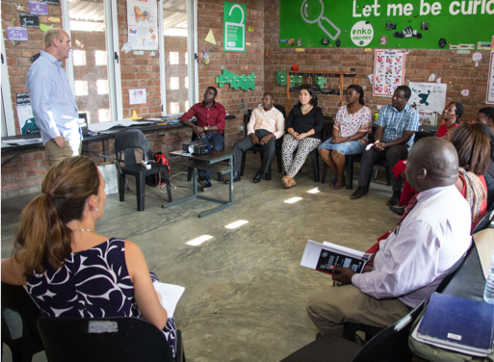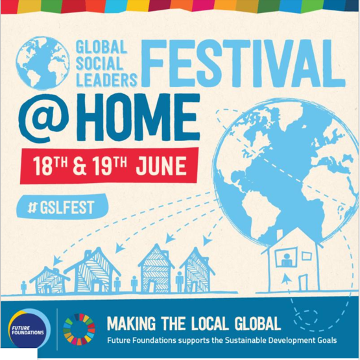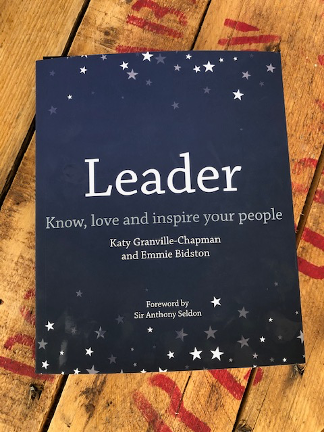So many of us take on positions of leadership during our lives, in both professional and personal capacities. Yet it is not unusual for there to be minimal instruction in how to lead. Emmie Bidston (1996), who has carried out research in this field, set up a leadership course and co-authored a book on the subject, explains in this blog some of the best qualities to cultivate as a leader, and how leaders might effectively adapt to the unique environment the pandemic has thrust us into.
What does it mean to be a good leader?
That’s a huge question! But if you pull all the academic research together, from psychology to neuroscience, then I think the secret lies in mastering three key principles: know your people, love your people, inspire your people. Leadership is all about relationships, and leadership that focuses on the flourishing of people is not only intrinsically valuable but is also the most important factor in achieving success in any domain.
How did you become interested in the topic and how have you carried out your research?

I have always been fascinated by leadership, from leading voluntary teams in my late teens and early twenties, to watching the process of devolution in the UK and supporting ministers step up into new leadership positions. I became director of the Wellington Leadership Coaching Institute in 2017, a role which involves running courses and conferences in leadership and coaching for students and adults. My colleague Katy Granville-Chapman, who founded the institute, was doing a PHD on the topic of leadership for flourishing with Oxford University when I took over the role, and that’s what inspired me to really delve into the research. Contacts at the university were incredibly helpful and ensured a rigour and depth to the research that underpins the courses we run (which are quality assured by Oxford University). This gave us confidence when we started writing the book.
What have you been up to since leaving St John’s?
After studying economics at John’s I joined the civil service fast track and worked developing policies for the government in a range of areas from education to contingency planning. I had three children and moved into teaching in 2011, and I am currently head of economics at Wellington College. I also coach triathlon for the students and I am a trained executive coach.

In 2016 I co-founded a charity, the Young African Leadership Program, focused on developing positive leadership and social entrepreneurship in partnership with local communities for young people living in Africa. So far, we have focused on teacher training and delivering leadership courses for students in Mozambique.
This year I co-authored a book with Katy: Leader: know, love and inspire your people (all royalties going to the Prince’s Trust). Katy and I love the rigour of academic research, but our real passion is to make that research accessible so that as many people as possible are inspired and equipped to apply it to their lives. Leaders really are made, they’re not born. We can all learn to lead. Yet we have seen so many people thrust into leadership positions with very little support or training. We wrote this book to be an accessible, practical and optimistic summary of the latest research on leadership.
We also wrote the online course Leading and Flourishing in Difficult Times. We were privileged to work with the Harvard University Human Flourishing Program and Oxford Character Project, and we engaged many wonderful contributors such as Professor Adam Grant (Best selling author of Give and Take) and Professor Amy Edmondson (Harvard; author of The Fearless Organisation).

The highlight of the past several months was probably seeing young people engage with our Global Social Leaders Programme. Despite the global lockdown, 1,247 young people completed 249 social action projects and 43,823 volunteering hours, and they impacted 97,492 lives as part of the GSL Global Goals Competition 2019–20. We were also able to host an online festival, which included talks from a Lord, Harvard and Oxford University lecturers and teenage activists, with speakers hailing from five different continents. Students and teachers attended from 63 countries, and we received 3,000 hits on the live site, where former UN Secretary General Ban Ki Moon delivered a special message encouraging young people to keep taking action to meet the UN Sustainable Development Goals.
What are some of the particular leadership challenges at the moment?
Around the world the COVID-19 pandemic is challenging leaders to step up like never before. Senior leaders of government, healthcare and business are in the spotlight, but the need for leadership does not stop with them. People everywhere can accept the challenge of leadership — the challenge to step up in their community, workplace or home and be a force for good at a difficult time. There have already been some great examples: neighbours who have mobilised community support, young people who have moved whole nations to #clapforourcarers, artists who have found new ways to create and inspire, small business owners who have sacrificially cared for their employees and customers, parents who have embarked on new adventures in home education.
Being a leader isn’t fundamentally a position, it is the choice to make a positive difference in the lives of others.
I believe that this is a time for our understanding of leadership to break beyond formal positions and structures into a dynamic process that enables people to act courageously for the good of others. It is a time to reimagine leaders as those at all levels of society and from all backgrounds who embrace the challenge in their own context. Being a leader isn’t fundamentally a position, it is the choice to make a positive difference in the lives of others.
Many leaders are needing to manage teams remotely at the moment. Do you have any advice for adapting to this style of leading?
Remote working makes it more important than ever to listen well, ask insightful questions and really know what is going on in the lives of the people we lead. The pressures on each of us vary enormously depending on factors such as family situations, health, physical space and wellbeing. We can’t support, empower or inspire people unless we know what is going on in their lives. We need to know our teams so that we are aware when people are holding back, feeling afraid, not asking for help or not sharing their ideas.
We can all learn to lead. Yet we have seen so many people thrust into leadership positions with very little support or training.
I find Amy Edmondson’s work on psychological safety very compelling. She encourages leaders to be clear on how important each individual’s contribution is and how much each member of the team matters. If people believe they matter, they are more likely to show up and be the best versions of themselves.
There are also some good practical tips on managing teams during remote working in this Harvard Business Review article.
What are your own plans for next year and beyond (personal and/or professional)?
Teaching, raising three teenage daughters, and equipping and inspiring people to lead in a way that allows others to flourish!

If you’d like to discover more about leading others, you can purchase Emmie’s book with a 30% discount, using the code CPD30; follow her leadership course (free unless you want a certificate); and listen to a podcast featuring Emmie and Katy.
Email the Development Office with your news and updates on development@joh.cam.ac.uk
